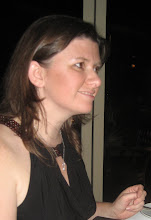You can always learn technology -- or whatever your product is -- and I don't think it would take much to fall in love with any kind of product if you put your mind to it... But I started wondering whether or not you can artificially create the same passion for your customers.
I started reflecting on my very own experience...
What is passion for customers?
In my mind, it is really about having this out-of-body experience. Their problems become automagically your problems. Their dreams become your dreams. If you get to that point then Product Management becomes pretty darn simple. Your ability to relate helps but the true difference is in your ability to care. When you're driven, you can become pretty creative. That may be the real secret of Product Management.
How do you get there?
The memory that comes to mind first: riding on my Dad's motorcycle when he visited his customers... He was in sales and kept telling me days in and days out that "customers are kings". He listened to everything they wanted to share; he helped them solve all of their problems whether they were related to what he had to sell or not. He even gave our puppy to one of them (okay, I am over it now). He hardly cared about the commission he got, sometimes forgoing it altogether. He got satisfaction from the good he was doing: solving their miseries.
It wasn't the only thing though. He went to a Commerce School in France and I never knew if he learned that there or whether he just had it in him... The good that you do comes right back at you. He learned the core principles of CRM and more importantly he taught me how to build strong and true relationships with customers. A happy customer is the best marketing you can do. This is not about a fake smile and a "pretend" attitude. If you sincerely care, you'll have no choice but be successful at your work.
I have always been impressed how many referrals and repeat customers he got, no matter what he was selling. So, when you bring more to the table than what is written in your job description, when you thrive to fulfill your customers' needs, when you get out of your way to anticipate their desires and concerns, you do something that people notice and appreciate. And when comes the time to trust someone, they will remember you. Not the sales dinner they were invited to. Not the empty promises for whatever featured they wanted. They will remember someone that was willing to jump in and ride the roller-coaster with them. Someone not afraid to stand up for them and to do what it takes to make them successful.
After all, this may not be "just a Product management" thing. This behavior can benefit anyone in any position...
But all this thinking did not help me answer the question: Inherited or Acquired? Does my very own Passion for Customers come from my Dad's education or his genes?
I guess it is not that important after all. More important would be to find out if you can bring it into someone... Past early childhood, I am not sure at all. But I could be wrong.





